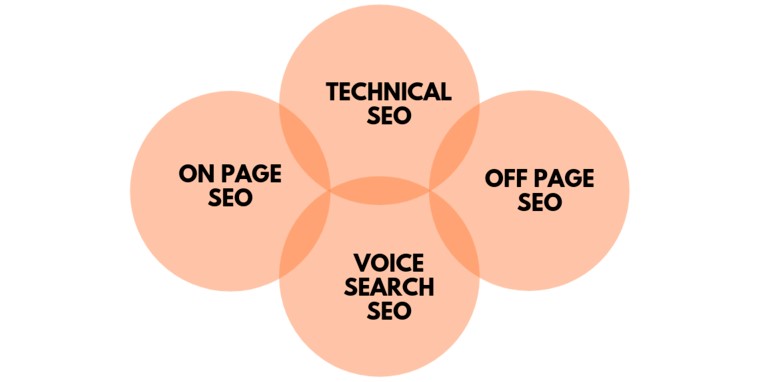Optimizing Your Plumbing Website: From Meta Tags to Schema Markup
In the modern digital age, having a strong online presence is essential for businesses in any industry, including the plumbing sector. Your website serves as a vital tool for attracting new customers, showcasing your services, and establishing credibility. However, simply having a website is not enough; it must be optimized to ensure it ranks well in search engine results and provides an excellent user experience. From quality web design to meta tags to schema markup, there are several critical elements to consider when improving your website’s performance.
Keyword Research: The Foundation of SEO
Before delving into the technical aspects of website management, it’s essential to start with keyword research. Understanding the keywords your potential customers use when searching for plumbing services in your area is crucial. Keywords like “plumbing services in Philadelphia” or “emergency plumber near me” are excellent starting points.
To conduct effective keyword research, consider using tools such as Google’s Keyword Planner, Ahrefs, or SEMrush. These tools can provide insights into search volume, competition, and related keywords. Additionally, analyzing your competitors’ plumbing websites can reveal valuable keyword ideas and strategies.
On-Page SEO: Enhancing Visibility and User Experience
Once you’ve identified your target keywords, it’s time to optimize your website’s on-page elements. These optimizations can significantly improve your website’s visibility in search engine results and enhance the user experience.
Title Tags
Crafting unique and descriptive title tags for each page of your website is essential. Incorporate your primary keywords naturally within these titles. For example, “Expert Plumbing Services in Philadelphia | YourPlumbingCompany.”
Meta Descriptions
Create compelling meta descriptions that entice users to click on your search results. While including keywords is important, focus on providing value to potential visitors.
Header Tags (H1, H2, H3)
Use header tags to organize your content hierarchically. Incorporate relevant keywords in headers, but maintain readability and coherence.
Content Optimization
High-quality, informative content is critical for both users and search engines. Ensure that your content addresses common plumbing issues, answers frequently asked questions, and demonstrates your expertise. Carefully integrate keywords while keeping the content natural.
Image Optimization
Compress image file sizes to improve page load times and add descriptive alt text to images for better accessibility and SEO.
Internal and External Links
Incorporate relevant internal links to other pages on your website to guide users and improve navigation. Include authoritative external links to reputable sources to boost your website’s credibility.
Mobile Optimization: Meeting Users Where They Are
With the increasing use of mobile devices, it’s imperative to ensure that your website is mobile-friendly. Find a reliable digital marketing firm to ensure your site’s performance on mobile devices. Google places significant importance on mobile optimization when ranking websites.
Responsive Design
Implement a responsive design that adapts seamlessly to various screen sizes, ensuring a consistent user experience across devices.
Mobile-Friendly Content and Navigation
Optimize your content and navigation for mobile users. Avoid cluttered layouts and ensure that buttons and links are easily clickable on smaller screens.
Page Load Speed Optimization
Mobile users are often on slower connections, so optimizing page load speed is crucial. Compress images, leverage browser caching, and minimize code to improve performance.
Schema Markup: Enhancing Search Results
Schema markup, also known as structured data, is a powerful tool for optimizing your website’s performance in search engine results. It helps search engines understand the content on your site better, leading to enhanced visibility and rich snippets in search results.
Implement Structured Data
Utilize schema markup to highlight essential information about your plumbing services, such as business hours, location, and customer reviews.
Rich Snippets and Schema Types
Explore various schema types relevant to sites like yours, such as LocalBusiness, PlumbingService, and Review. These can make your search results more informative and attractive to users.
Local SEO: Targeting Your Local Market
For plumbing businesses, targeting your local market is crucial. Local SEO strategies can help you reach potential customers in your area effectively.
Google My Business
Claim and optimize your Google My Business (GMB) listing. Ensure your NAP (Name, Address, Phone) information is consistent across all online platforms.
Local Citations
Build citations on local directories and maintain accurate information about your plumbing business. Consistency is key to building trust with both users and search engines.
Customer Reviews
Encourage satisfied customers to leave reviews on platforms like Google and Yelp. Respond professionally to both positive and negative reviews to demonstrate your commitment to customer satisfaction.
Technical SEO: The Backbone of Your Website
Behind the scenes, technical SEO plays a critical role in optimizing your website for search engines.
XML Sitemap
Create and submit an XML sitemap to help search engines crawl and index your website effectively.
Robots.txt
Optimize your robots.txt file to guide search engine bots and prevent them from indexing unnecessary pages.
Website Speed
Improve page load times by optimizing images, enabling browser caching, and minimizing code. Fast-loading pages lead to better user experiences and higher search rankings.
SSL Certificate
Ensure your website uses a secure connection (HTTPS) to protect user data and gain a ranking boost from Google.
404 Error Handling
Customize your 404 error pages to provide helpful navigation options and encourage users to stay on your website.
Monitoring and Analytics: Measure Your Success
To track the effectiveness of your website improvement efforts, use monitoring and analytics tools.
Google Analytics
Set up and configure Google Analytics to monitor website traffic, user behavior, and conversions.
Google Search Console
Use Google Search Console to keep an eye on your website’s performance in search results, identify indexing issues, and resolve errors.
Regular SEO Audits
Conduct periodic SEO audits to review and update your optimization strategies as needed. Reliable SEO services are a continuing investment that requires adaptation to changing algorithms and user behavior.
Social Media Integration: Expanding Your Online Presence
Integrating social media into your website can help expand your online presence and reach a broader audience.
Shareable Content
Create valuable and shareable content on your website that users are inclined to share on their social media profiles.
Social Media Profile Optimization
Ensure your social media profiles are complete, professional, and link back to your website.
Social Sharing Buttons
Include social sharing buttons on your website to make it easy for visitors to share your content with their networks.
Conclusion: Continuous Improvement for Plumbing Success
In conclusion, optimizing your website from meta tags to schema markup is a multifaceted process that requires attention to detail and a commitment to ongoing improvement. By conducting keyword research, enhancing on-page SEO, optimizing for mobile devices, implementing schema markup, and incorporating local SEO strategies, you can significantly improve your website’s performance in search engine rankings and provide an exceptional user experience.
Remember that SEO is not a one-time effort but an ongoing process. Regularly monitor your website’s performance using tools like Google Analytics and Search Console, and adapt your strategies to stay competitive in the ever-evolving online landscape.
Ready to boost your plumbing business in Pennsylvania? Contact SEO Plumber Pennsylvania today at (215) 770-6442 for top-notch web design in Philadelphia and comprehensive SEO solutions. Let us transform your online presence and attract more customers to your plumbing services.
FAQs:
What is the significance of keyword research for my plumbing website?
Keyword research is vital as it helps you understand the terms potential customers use to find plumbing services. Optimizing your content around these keywords improves your website’s visibility in search results, attracting more visitors.
How can I ensure my plumbing website is mobile-friendly?
To make your plumbing website mobile-friendly, use responsive design, optimize content for smaller screens, and focus on fast page load times. These enhancements enhance user experience and improve mobile search rankings.
What is schema markup, and why is it essential for my plumbing website?
Schema markup is structured data added to your website’s code to provide search engines with detailed information about your plumbing services. It enhances search results with rich snippets and helps your website stand out, increasing click-through rates.
How often should I conduct SEO audits for my plumbing website?
Regular SEO audits are essential for maintaining your website’s performance. Consider conducting audits quarterly or at least twice a year to identify and address any issues, adapt to algorithm changes, and stay competitive.
What’s the role of social media in plumbing website optimization?
Social media integration expands your online presence and can drive traffic to your plumbing website. Shareable content, optimized social profiles, and social sharing buttons all contribute to better visibility and user engagement.
More to Read
-
 SEO Sinks and Rises: Elevating Your Plumbing Business Online
SEO Sinks and Rises: Elevating Your Plumbing Business Online -
 Turning Clicks into Customers: Plumbing the Depths of Digital Marketing
Turning Clicks into Customers: Plumbing the Depths of Digital Marketing -
 Web Wrenching: A Guide to SEO Mastery for Plumbers
Web Wrenching: A Guide to SEO Mastery for Plumbers -
 Beyond the Plunger: SEO and Digital Marketing for Modern Plumbers
Beyond the Plunger: SEO and Digital Marketing for Modern Plumbers -
 Pipe Perfection: Crafting a SEO Strategy for Plumbers
Pipe Perfection: Crafting a SEO Strategy for Plumbers -
 Digital Drain Surge: SEO Tactics to Skyrocket Your Plumbing Business
Digital Drain Surge: SEO Tactics to Skyrocket Your Plumbing Business -
 Tightening the SEO Faucet: Strategies for Plumbing Success Online
Tightening the SEO Faucet: Strategies for Plumbing Success Online -
 The Digital Toolbox for Plumbers: SEO and Marketing Strategies
The Digital Toolbox for Plumbers: SEO and Marketing Strategies -
 SEO Plunge: Transforming Your Plumbing Business Online
SEO Plunge: Transforming Your Plumbing Business Online -
 Pipelines to Profit: Navigating Digital Marketing for Plumbers
Pipelines to Profit: Navigating Digital Marketing for Plumbers

